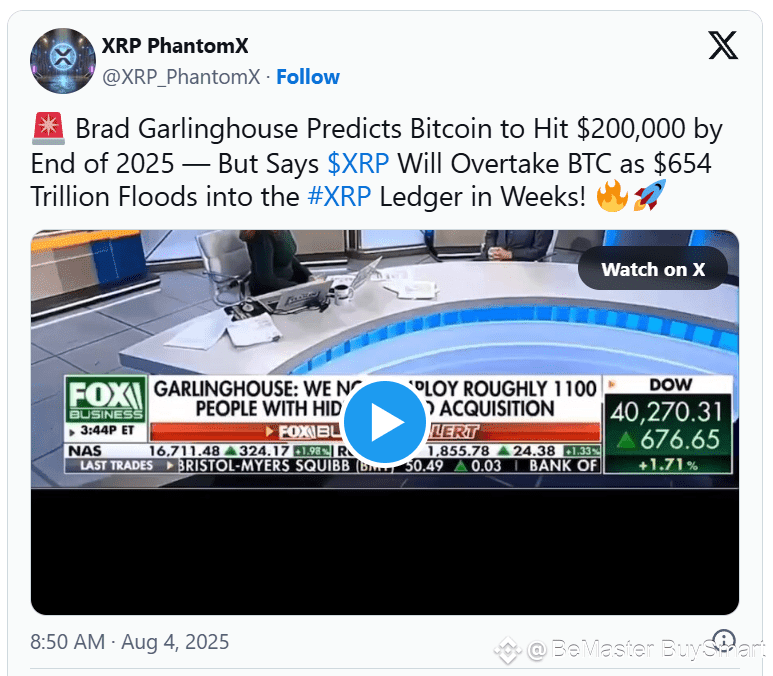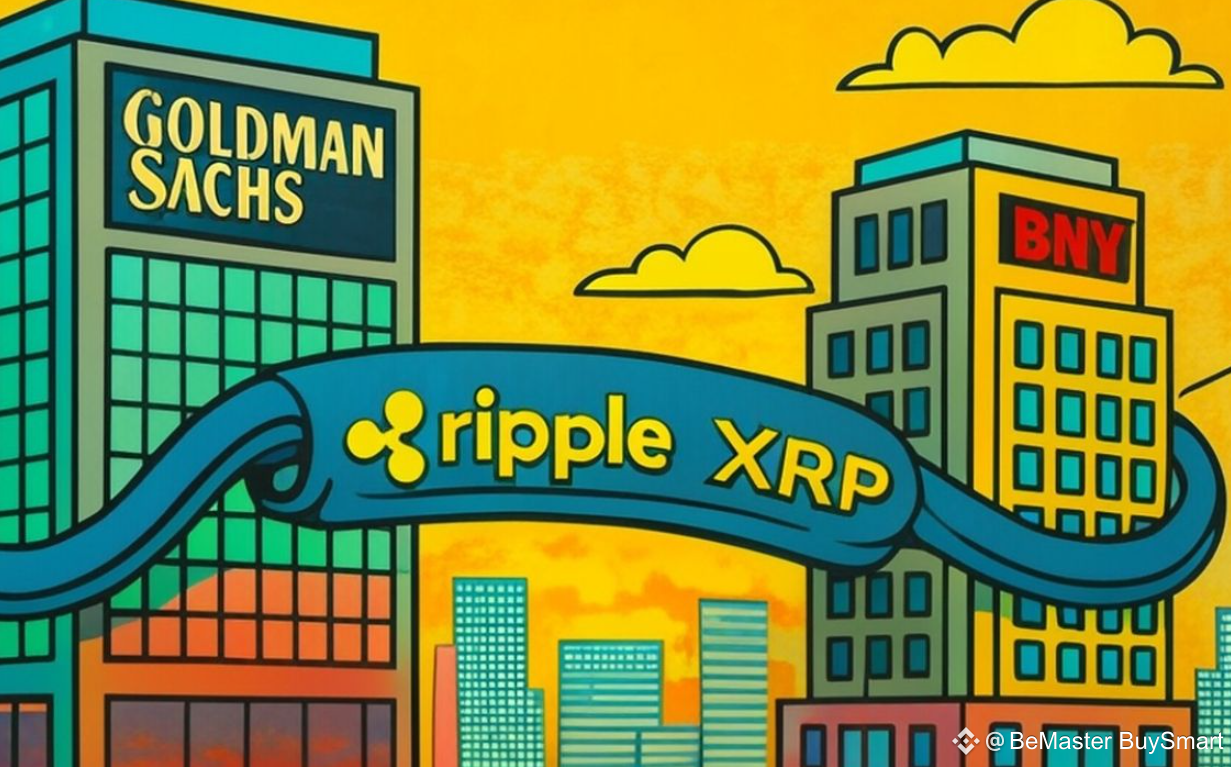$XRP Ripple recently released a report revealing how banks are defining their long-term digital asset strategies using blockchain technology. The report also clarified how, among others, JPMorgan Chase, Goldman Sachs, Citigroup , and the Japanese SBI Group are at the forefront (in the traditional finance sector) of supporting blockchain startups. With cheaper, faster, and more accessible services, the future of financial institutions will depend on blockchain technology .
💥Citigroup and JPMorgan among the main players in blockchain
Ripple's joint report with CB Insights and the UK Blockchain Technology Center – published on August 3 – shows how some of the most important banking and financial groups are actively using blockchain to create an institutional infrastructure for trading, staking, and tokenization.
These financial institutions are expanding their architecture with blockchain, diversifying their portfolios, enabling cryptocurrency payments, offering custody services, tokenizing assets, and more.
Ripple went into detail:
“The report presents a comprehensive analysis of the investment and partnership activities of over 8,000 blockchain companies and 1,800 banks over a five-year period, including direct investments, mergers and acquisitions, and strategic partnerships.”
💥Why are financial institutions adopting blockchain?
Blockchain is the foundational technology underpinning the entire digital asset ecosystem , including cryptocurrencies, stablecoins, and real-world digital assets (RWAs). This technology enables the secure, immutable, and transparent recording and transfer of information , eliminating the need for a central governing authority.
Thanks to a distributed consensus mechanism and advanced cryptographic protocols, the blockchain ensures that all transactions are verifiable and tamper-resistant, thus increasing the trust of users and financial operators.
Furthermore, blockchain is transforming the financial sector towards a more efficient and inclusive model , particularly suited to addressing the needs of emerging markets and populations traditionally excluded from the banking system. Its ability to automate processes through smart contracts and offer financial services without intermediaries significantly reduces transaction costs and execution times.
In particular, blockchain has revolutionized cross-border payments , a sector traditionally characterized by slowness, high costs, and complexity due to the presence of multiple intermediaries and clearing systems. Thanks to this technology, international money transfers can be made directly, quickly, and securely, with lower fees and greater transparency. This opens up new opportunities for businesses and individuals , fostering global financial inclusion and facilitating more seamless and accessible international trade.
💥What lies ahead? The future of financial institutions depends on blockchain.
Traditional financial institutions are currently gradually entering the world of decentralized finance (DeFi), driven by the most advanced technological innovations in the blockchain space, most notably the XRP Ledger . This evolution is enabled not only by continuous technical improvements but also by an increasingly clear and defined regulatory framework, which provides institutions with the legal certainty needed to adopt digital asset-based solutions.

Thanks to this combination of technological innovation and more stable regulation, the integration of digital assets into traditional financial systems becomes increasingly feasible and sustainable in the long term.
Ripple emphasizes that the transition of banks and large financial institutions from the stage of experimentation and pilot projects to concrete, large-scale implementation represents a pivotal moment for the global economy.
This transition is crucial because blockchain, with its inherent features of advanced security, complete transparency, and adherence to shared standards, can provide the technological infrastructure needed to modernize and make financial services globally more reliable.
In this way, blockchain technology not only strengthens trust among market participants but also helps create a more inclusive, efficient, and resilient financial system capable of addressing the economic and regulatory challenges of the future.
🚀🚀🚀 FOLLOW BE_MASTER BUY_SMART 💰💰💰
Appreciate the work. 😍 Thank You. 👍 FOLLOW BeMaster BuySmart 🚀 TO FIND OUT MORE $$$$$ 🤩 BE MASTER BUY SMART 💰🤩
🚀🚀🚀 NOT JUST LIKE BUT, CLICK FOLLOW BE MASTER BUY SMART - Thank You.

🚀🚀🚀 FOLLOW BE_MASTER BUY_SMART 💰💰💰
Appreciate the work. 😍 Thank You. 👍 FOLLOW BeMaster BuySmart 🚀 TO FIND OUT MORE $$$$$ 🤩 BE MASTER BUY SMART 💰🤩
🚀🚀🚀 NOT JUST LIKE BUT, CLICK FOLLOW BE MASTER BUY SMART - Thank You.

